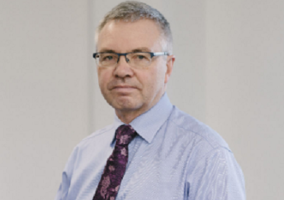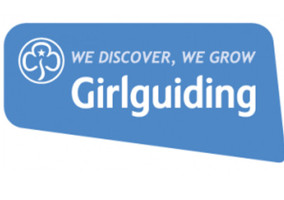Women’s Aid has publicly backed members which provide single-sex services, including when they exclude trans women who have obtained a gender recognition certificate.
This has received a mixed response from other bodies. Some have welcomed the clarification about Women’s Aid’s position, others said the position could put trans women at risk.
The membership body for domestic abuse services and refuges consulted members and other stakeholders prior to setting out its organisational position statement, but says that the publication will not change how any services are run.
Women’s Aid started by saying: “We are proud to have a range of services, including single-sex services and services that meet the needs of trans and non-binary people, in our federation.”
‘Trauma informed spaces’
Women’s Aid has over 160 members, which provide support and accommodation to survivors of domestic abuse and their children in England. It also runs national online support services and provides training to others.
“Domestic abuse organisations and refuges were originally created by and for women – many of whom were survivors themselves – as spaces free from men for safety, healing, mutual support, and solidarity,” the statement says.
Women’s Aid says that these “trauma informed spaces are crucial” and claims that women-led services have seen their funding cut by a “trend towards gender neutral commissioning”.
The statement adds: “There is an ongoing exchange of different views on the inclusion of trans women in single sex spaces including with commissioners, within feminist movements and organisations, and across society at large.”
Through its consultation it found that some members only offer support to women and children, while others offer support to all victims of domestic abuse.
“Members routinely use exceptions within the Equality Act 2010 to provide single sex services. They do this because survivors have told them that they and their children experience trauma responses when in contact with males, particularly at the point of leaving an abusive relationship but also for some time afterwards,” the statement says.
Women’s Aid says “many” of its members also support trans and non-binary survivors.
“A relatively small number of trans women need to access emergency accommodation. Where they do, some member organisations provide this within their accommodation on a case-by-case basis while others provide alternative dispersed accommodation or signpost to other organisations,” the statement says.
‘We will defend the provision of single-sex service’
Women’s Aid says its charitable objects focus on protecting women and children and that providing single-sex services is a key part of this.
The statement says: “The provision of single-sex domestic abuse services is a founding principle of Women’s Aid, and we will defend it.”
This means that some members exclude trans women from services.
“We know from our members that many women and children who have been subject to male violence and abuse need access to support and accommodation which is provided in single sex spaces as this reduces their distress and trauma. We therefore support the principle of providing single sex domestic abuse services which is lawful under the Equality Act,” the statement says.
“Some members conclude that it is not appropriate to include trans women (including those with a Gender Recognition Certificate) in women-only shared spaces. We support their right to make this assessment, as long as they do so lawfully.”
To obtain a Gender Recognition Certificate people need to have a diagnosis of gender dysphoria and have lived in their acquired gender for two years.
Women’s Aid adds that it will help trans women who approach the charity for help, and “signpost to specialist services that best respond to their specific needs”.
The statement says that Women’s Aid’s role is to “empower” its members to make effective decisions about what is needed locally.
“Within the scope of our membership terms, we trust our members to unfailingly put survivors at the centre of their provision, and we will defend our members when they speak out about survivors’ needs.”
‘Committed to developing our understanding’
Women’s Aid says that it will continue to call for more funding for all services.
The charity’s current policy is due to be reviewed by trustees in 18 months.
“We will engage with respectful discussions about sex and gender and access to services,” it adds.
“We recognise that balancing the rights of different groups of people can be challenging and call for respectful discourse about how to develop and deliver the most effective services to meet the needs of all vulnerable victims.”
“As part of this we are committed to further developing our understanding of the needs of trans people and emerging best practice in service provision for this group.”
‘Inaccurately conflates trans women with perpetrators of abuse’
Galop, a charity that supports LBGT+ people who have experienced domestic abuse, criticised the statement.
In its statement Galop says: “Trans women have always been part of this movement, both as service users and service providers. They must not be erased from this narrative and we are mindful of the impact this statement is likely to have on those trans and non-binary people who are currently working in or accessing these services.”
Galop says that trans inclusion is not “in conflict” with commissioning services using a by-women-for-women approach.
“We are concerned that, in approaching trans-inclusion in this way, Women’s Aid is inaccurately conflating trans women with perpetrators of abuse and violence, and is doing so as a voice of power towards a disempowered minority group with far less influence and platform,” Galop says.
Galop works with trans and non-binary victims of domestic and sexual abuse and says that there are not enough trans-inclusive refuges for people who need to flee.
“There is a narrative that trans people in refuge spaces and other women’s services are a danger to other service users – whereas what we see is that trans women are often at risk of victimisation and assault in those accommodation services that are open to them,” its statement adds.
This mean that trans and non-binary people have to choose between “dangerous and abusive situations” or risk becoming homeless.
Galop adds: “The current system is failing trans people in this country, and this statement by Women’s Aid is a reflection of that failure.
“Domestic abuse services exist in order to support and protect victims of abuse. Women’s Aid represents the vast majority of these services across England, many of which we know are already not open to trans women and non-binary people who are victims of abuse and violence.
“If these services remain closed to these victims, and no other services are provided as an alternative, then this approach condones and is complicit in leaving trans people without a way to reach safety.”
Finally, Galop said the discussion should move away from a “hierarchy of victimhood” and called for “high-quality, survivor-centred” services for everyone.
“We urge those who speak of their desire for trans people to live in safety and dignity to push for the provision of trans-inclusive specialist services in light of Women’s Aid’s statement today.”
Related articles











